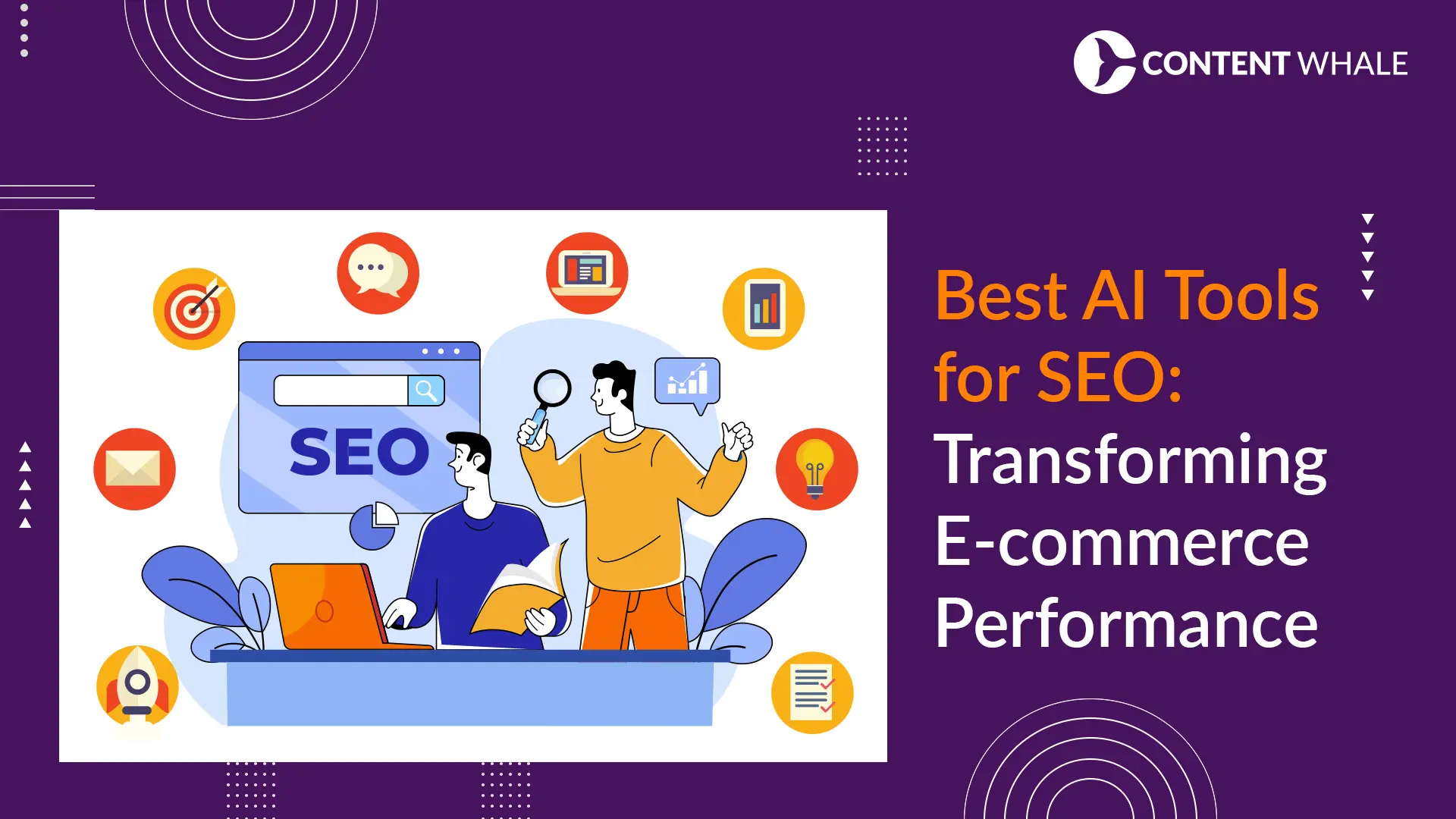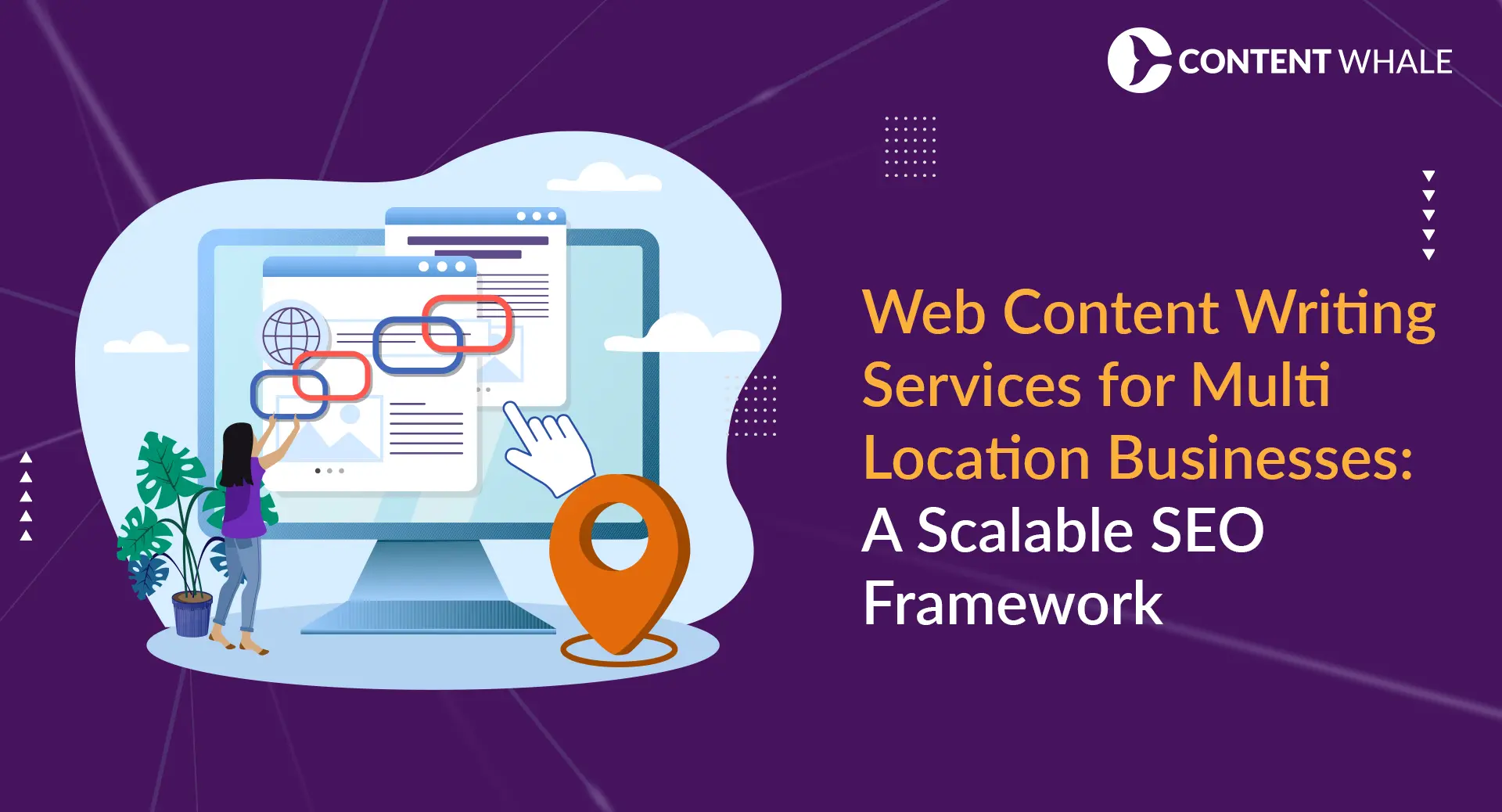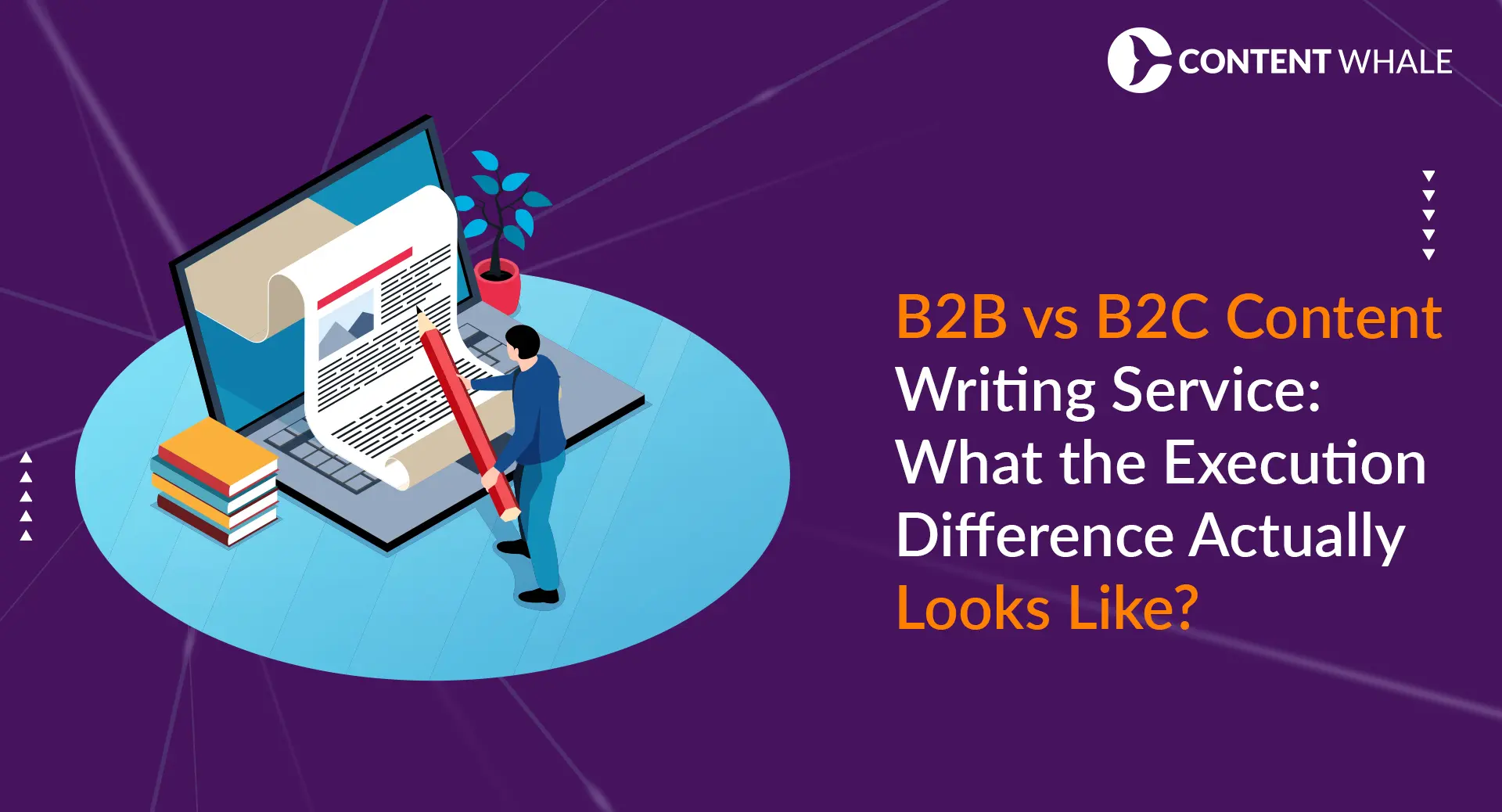E-commerce businesses face mounting pressure to rank higher while managing thousands of product pages and category structures. Traditional SEO methods cannot scale at the speed required to compete in saturated digital markets today. AI tools for SEO solve this challenge by automating research, content creation, and technical audits with precision impossible for manual teams.
According to research from Stanford University (Source), businesses using artificial intelligence for search optimization achieve significant gains in organic traffic compared to traditional methods. Machine learning optimization enables real-time adjustments to changing search algorithms, keeping e-commerce sites ahead of competitors. This technology processes millions of data points to identify patterns human analysts might miss entirely.
The shift toward intelligent automation transforms how online retailers approach visibility and customer acquisition strategies. AI seo services deliver predictive insights that inform product descriptions, meta tags, and category page optimization simultaneously. Retailers now spend less time on repetitive tasks and more resources on strategic growth initiatives that drive revenue.
This guide explores how best AI SEO tools transform e-commerce performance through automation, predictive analytics, and scalable optimization strategies.
Understanding AI-Powered SEO Automation
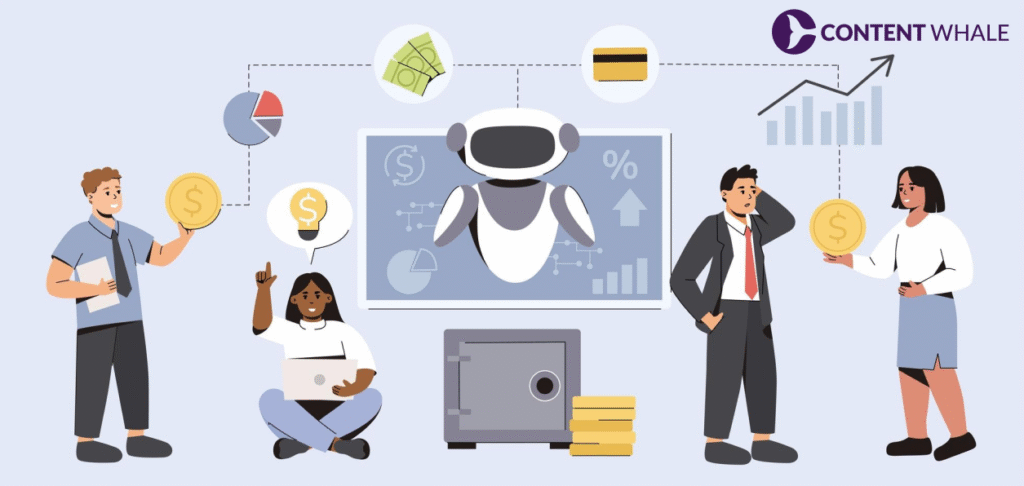
How Machine Learning Reshapes Search Optimization?
Best AI SEO tools leverage natural language processing tools to analyze search intent patterns across different product categories and customer segments. These platforms identify semantic relationships between keywords, helping e-commerce sites target long-tail phrases that convert at higher rates. Research from academic institutions (Source) shows that semantic search technology improves content relevance scores significantly through advanced natural language processing techniques.
Automated keyword research eliminates guesswork by scanning competitor strategies, search volume trends, and seasonal fluctuations in real time. Algorithm analysis platforms monitor Google updates and adjust recommendations before rankings decline, protecting revenue streams from sudden algorithmic shifts. This proactive approach reduces the reactive scrambling that drains marketing budgets during major updates.
Technical SEO at Scale
E-commerce sites with extensive product catalogs benefit from AI tools for SEO that crawl thousands of pages to detect broken links and duplicate content issues automatically. Content generation software creates unique product descriptions using templates trained on high-converting copy, maintaining brand voice while eliminating thin content penalties. According to research published by institutions studying web performance (Source), optimized systems reduce page load times by 34 percent through improved technical efficiency.
Intelligent link building tools identify authoritative sites within specific niches, outreach opportunities, and anchor text optimization strategies without manual prospecting. Conversion rate optimization AI tests multiple page variations simultaneously, determining which layouts, calls to action, and product placement drive purchases most effectively. These systems learn from each interaction, continuously refining strategies based on actual customer behavior patterns.
Essential AI SEO Tools for E-commerce Success
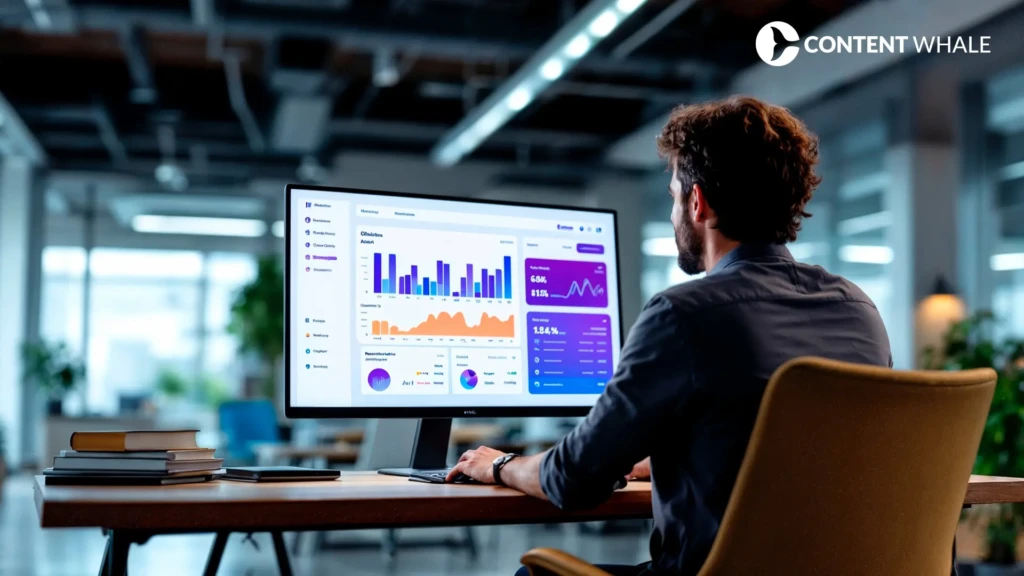
Keyword Research and Content Planning
Platforms offering AI SEO services analyze search trends to predict which products will gain traction before competition intensifies in those categories. Predictive analytics SEO tools forecast seasonal demand shifts, allowing retailers to optimize inventory pages months ahead of peak shopping periods. This foresight translates directly into capturing early buyer interest and establishing topical authority before market saturation occurs.
Content generation software tailored for e-commerce creates category descriptions, buying guides, and FAQ sections that satisfy search intent while incorporating LSI keywords naturally. Studies from universities researching information retrieval indicate that natural language processing helps AI understand user intent more accurately through semantic analysis (Source). These tools maintain consistency across hundreds of pages, ensuring every product receives optimization attention regardless of catalog size.
Technical Optimization and Performance Monitoring
Best AI SEO tools include site speed analyzers that identify render-blocking resources, oversized images, and inefficient code structures hindering mobile performance. According to research from institutions studying e-commerce performance, page load speed impacts conversion rates significantly, with faster sites creating better user experiences (Source).
Automated technical audits flag schema markup errors, canonicalization issues, and crawl budget waste that manual reviews frequently overlook. Search ranking automation tracks keyword positions across multiple locations, devices, and search engines, alerting teams to sudden drops requiring immediate investigation.
These systems correlate ranking changes with specific site modifications or competitor actions, providing clear cause-and-effect analysis for strategic adjustments. Real-time monitoring prevents revenue loss from undetected technical problems or negative SEO attacks.
Implementation Strategies for Maximum Impact
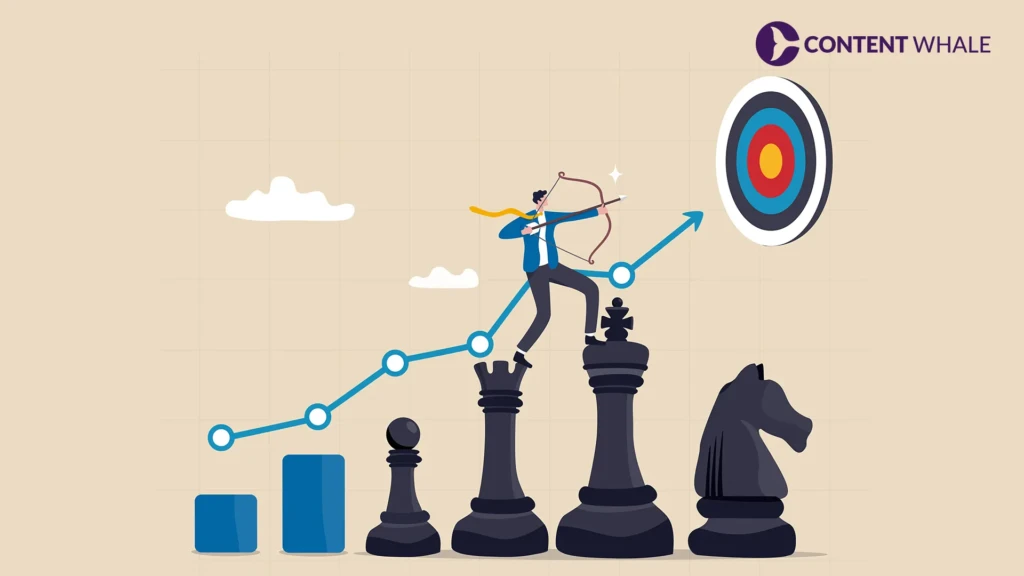
Integrating AI Tools Into Existing Workflows
Start by auditing current SEO processes to identify repetitive tasks consuming excessive time without proportional results for your team. AI tools for SEO excel at data processing, pattern recognition, and bulk optimization tasks that drain human resources.
Key integration steps include:
- Assign automated systems to handle technical crawls, keyword tracking, and competitive analysis while strategists focus on high-level planning and creative decision making.
- Train teams on interpreting AI-generated insights rather than treating recommendations as absolute directives that require no human judgment or contextual understanding.
- Establish feedback loops where team members correct misaligned suggestions, helping machine learning optimization systems learn your business-specific priorities, brand guidelines, and unique market positioning.
- Schedule regular reviews of AI performance metrics to identify which automated processes deliver the strongest ROI and which require human intervention or adjustment.
Research from MIT demonstrates that human-AI collaboration produces better outcomes than either approach alone when properly implemented (Source).
Measuring ROI and Performance Metrics
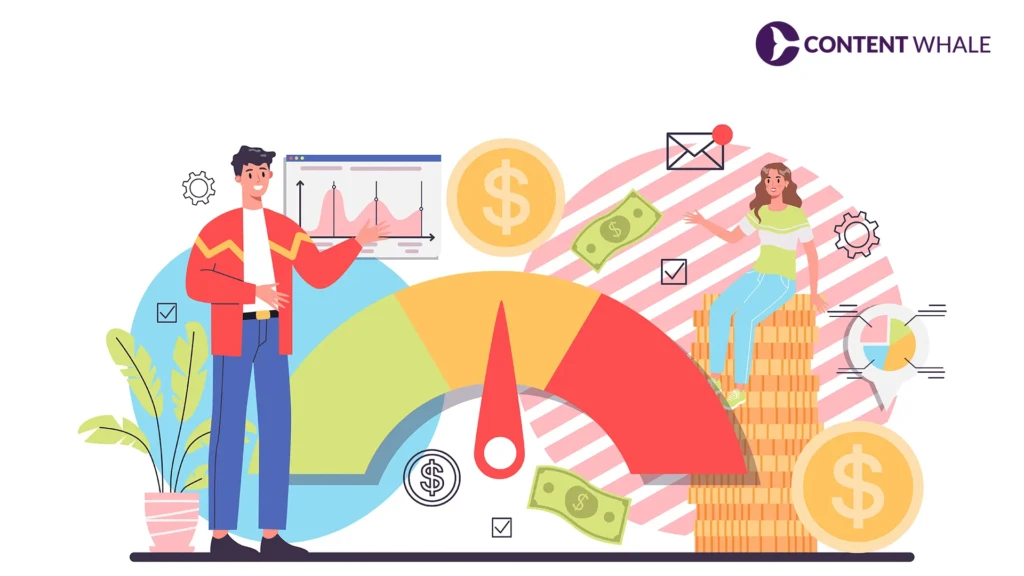
Track specific KPIs tied to automated optimizations, including organic traffic growth, conversion rate improvements, and time saved on manual tasks. AI SEO services should demonstrate measurable impact within 90 days through increased rankings for target keywords and reduced technical errors.
Essential metrics to monitor include:
- Organic traffic growth percentages across product categories and landing pages, comparing performance before and after AI tool implementation to establish clear baseline improvements.
- Conversion rate changes on optimized pages, tracking how automated content and technical improvements translate into actual customer purchases and revenue generation.
- Cost per acquisition reductions that demonstrate automation investments are delivering real customer acquisition efficiency gains rather than just vanity metrics or traffic increases.
- Time savings quantified in hours per week that teams previously spent on manual tasks, now reallocated to strategic initiatives like market expansion or customer experience improvements.
Compare page performance before and after implementing content generation software to validate quality and engagement improvements across product categories. Natural language processing tools should enhance readability scores, reduce bounce rates, and increase average session duration when functioning effectively. Document these metrics to justify continued investment and identify which AI tools deliver strongest returns for specific optimization needs.
How Content Whale Can Help?
Content Whale combines best AI SEO tools with expert human oversight to deliver e-commerce optimization that balances automation efficiency with brand authenticity. Our team audits your current technical setup, identifies quick wins through AI-powered analysis, and implements custom strategies aligned with your business goals. We handle everything from automated keyword research to crafting product descriptions that convert browsers into buyers consistently.
Our AI SEO services include predictive analytics SEO reporting that forecasts traffic potential for new product launches and seasonal campaigns months in advance. We integrate intelligent link building outreach, conversion rate optimization ai testing, and ongoing performance monitoring into comprehensive packages tailored for growing online retailers.
Conclusion
AI tools for SEO represent the competitive advantage e-commerce businesses need to scale optimization efforts without proportionally increasing costs or headcount. These platforms automate time-intensive tasks, uncover hidden opportunities through data analysis, and adapt strategies faster than manual approaches allow. Retailers embracing this technology gain measurable improvements in organic visibility, customer acquisition costs, and overall marketing efficiency.
Ready to transform your e-commerce SEO performance? Contact Content Whale today for a complete audit and discover how our AI SEO services can accelerate your organic growth trajectory.
FAQs
1. What are the best AI SEO tools for small e-commerce businesses?
Small retailers benefit most from platforms offering automated keyword research, technical audits, and content optimization in single dashboards. Tools like Surfer SEO and Clearscope provide actionable insights without requiring extensive technical expertise or large teams. These solutions scale with business growth, making them cost effective for stores with limited marketing budgets initially.
2. How do AI SEO services improve product page rankings?
Automated systems analyze top-ranking competitor pages to identify content gaps, optimal keyword placement, and schema markup implementations that boost visibility. Machine learning optimization adjusts meta descriptions, header tags, and internal linking structures based on performance data continuously. This dynamic approach keeps product pages competitive as search algorithms and market conditions evolve throughout the year.
3. Can AI tools for SEO replace human SEO specialists completely?
Automation excels at data processing and repetitive optimization tasks but lacks strategic thinking, brand understanding, and creative problem solving humans provide. The most effective approach combines AI efficiency for technical execution with human expertise for strategy development, content quality assurance, and adapting to unique business challenges. This collaboration produces superior results compared to either approach in isolation.
4. What makes AI SEO tools better than traditional optimization methods?
Speed, scale, and data processing capacity distinguish artificial intelligence from manual SEO approaches that cannot analyze millions of search patterns simultaneously. Predictive analytics identify opportunities before competitors, while real-time monitoring prevents revenue loss from technical issues or ranking drops. Traditional methods remain effective but require significantly more time and resources to achieve comparable results at scale.
5. How long before AI tools for SEO show measurable results?
Most e-commerce sites notice technical improvements within 30 days as automated systems fix crawl errors, broken links, and page speed issues immediately. Organic traffic growth typically becomes evident within 90 days as content optimizations, keyword targeting refinements, and link building efforts compound over time. Sustainable results require ongoing optimization since search algorithms, competitors, and market conditions constantly change throughout business cycles.
6. Are the best AI SEO tools worth the investment for new online stores?
New stores benefit significantly from automation because limited resources make manual optimization impractical across growing product catalogs and categories. Early implementation establishes strong technical foundations, prevents common errors that delay indexing, and identifies high-value keywords before competition intensifies in target niches. The time saved through automation allows founders to focus on product development, customer service, and other critical business priorities during crucial growth phases.
